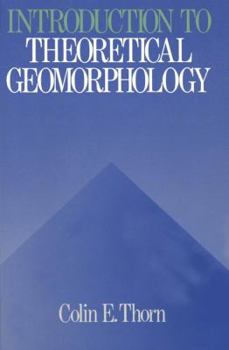An Introduction to Theoretical Geomorphology
Select Format
Select Condition 
Book Overview
This book stems from the belief that undergraduate, and many graduate, students in geomorphology are taught far too little about the theoretical foundation of the discipline. This is a tragic oversight because all disci- plines exist solely by virtue of a body of theory; furthermore, all substan- tive research must, of necessity, be directed at improving this body of theory. While the centrality of theory is a characteristic of all science, it appears that it is fieldwork that has achieved sacrosanct status in geo- morphology. The supreme standing of fieldwork would seem at first sight to be supported by such comments as that cited by Ager (1984, p. 42): "My old professor - the great H. H. Read - once said, 'The best geologist is, other things being equal, he who has seen the most rocks'. " The key issue in Read's comment is obviously "other things being equal"; what are these other things? For they will be just as applicable to geomorphology as to geology at large. One is certainly personal ability, but another critical com- ponent is the individual's knowledge of relevant theory. Pursuit of theo- retical knowledge is not generally a favored activity in geomorphology, a situation epitomized by Chorley's (1978, p. 1) one-liner: "Whenever anyone mentions theory to a geomorphologist, he instinctively reaches for his soil auger.
Format:Paperback
Language:English
ISBN:9401094438
ISBN13:9789401094436
Release Date:February 2012
Publisher:Springer
Length:270 Pages
Weight:0.84 lbs.
Dimensions:0.6" x 6.1" x 9.2"
Customer Reviews
0 rating





